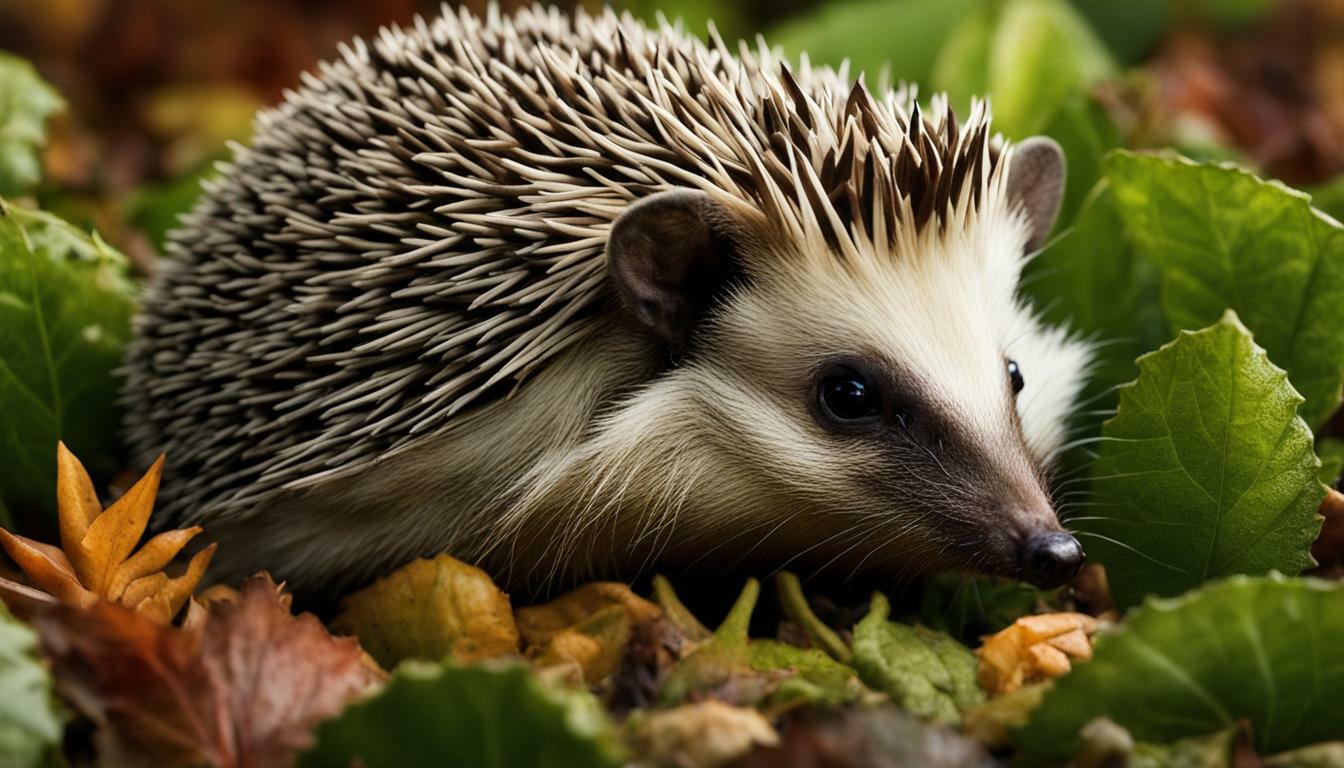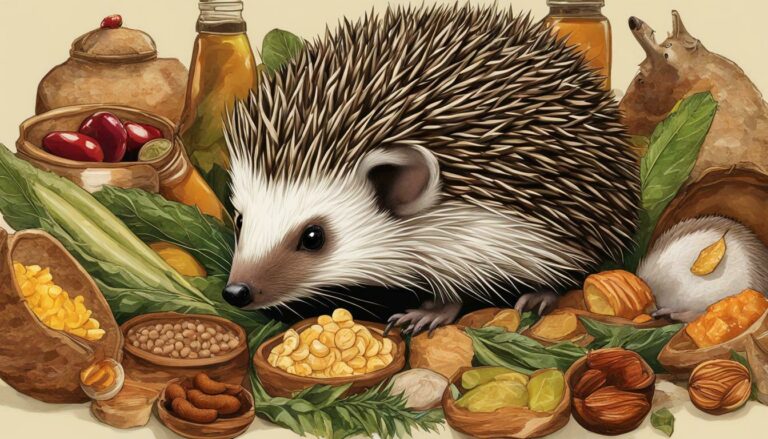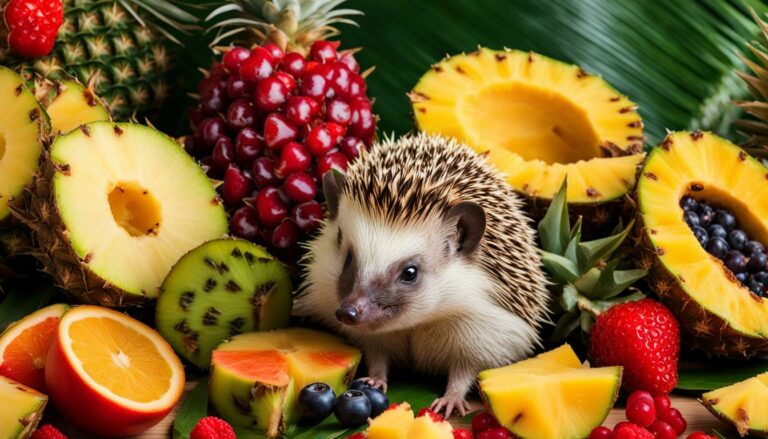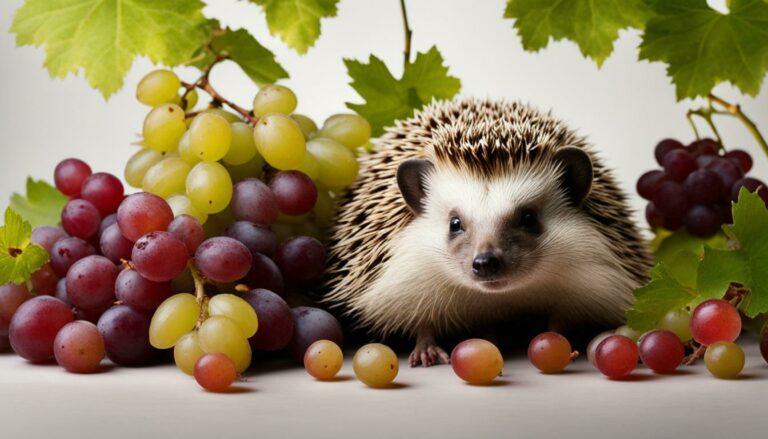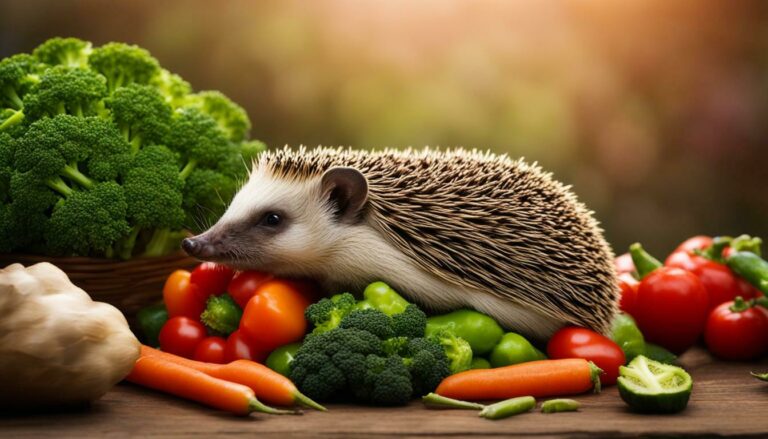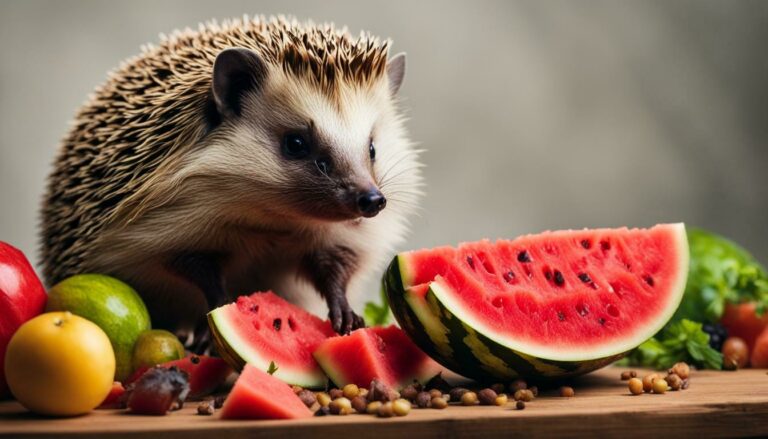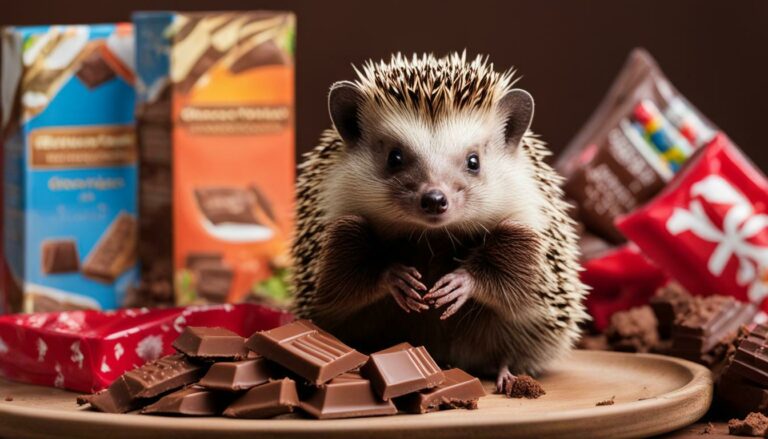Can Hedgehogs Eat Hornworms? Diet Guide for Pet Owners
Hedgehogs are cute animals that live in Europe and North America. They look similar to rabbits, but they have long spines instead of fur. They also have big ears and bushy tails.
Key Takeaways:
- Hedgehogs are insectivores and need a diet high in protein and low in fat.
- Insects and bugs are an important part of a hedgehog’s natural diet.
- Hedgehogs can eat hornworms, which are safe and nutritious for them.
- Feeding hornworms to hedgehogs can provide calcium and other essential nutrients.
- Hedgehogs can also eat other insects like mealworms and crickets.
Now that we know a little bit about hedgehogs, let’s explore their diet and whether they can eat hornworms.
Can Hedgehogs Eat Insects And Bugs?
Hedgehogs eat insects such as grasshoppers, crickets, and caterpillars. They also eat worms and other invertebrates. Their stomach acid breaks down the tough exoskeleton of these creatures.
Insects and bugs provide hedgehogs with vitamins and nutrients that help keep them healthy. These small creatures are an important part of a hedgehog’s diet, as they offer essential proteins and fats necessary for their well-being.
Some common insects and bugs that hedgehogs can eat include mealworms, cockroaches, beetles, ants, wasps, bees, flies, butterflies, moths, and spiders.
Hedgehog stomach acids break down the hard shells of insects and worms, allowing them to digest the nutritious parts. Once digested, the nutrients are absorbed into the bloodstream through the hedgehog’s digestive tract.
| Insects and Bugs | Nutritional Value |
|---|---|
| Mealworms | High in protein, but lacking in other essential vitamins and minerals. |
| Crickets | Good source of protein and fiber. |
| Grasshoppers | High in protein and low in fat. |
| Caterpillars | Rich in protein and essential fatty acids. |
Feeding Insects to Hedgehogs
When feeding insects to your hedgehog, it is important to ensure they are safe and free from any toxins or parasites. It is best to purchase live insects from a trusted store or bug breeder.
While insects are an important part of a hedgehog’s diet, they should be given in moderation to avoid an unbalanced diet. It is recommended to offer a variety of insects along with a high-quality dry cat food to ensure a well-rounded nutritional intake.
Overall, hedgehogs can safely eat insects and bugs as part of their diet. It is important to provide them with a balanced and varied meal plan to keep them healthy and happy.
How Do Hedgehogs Eat Worms And Other Vertebrate Animals?
Hedgehog stomach acids break down the hard shells of insects and worms. This digestive process allows hedgehogs to extract the nutritious parts of these creatures and absorb them into their bloodstream through the digestive tract. As insectivores, hedgehogs have evolved to efficiently digest and utilize the protein and nutrients found in worms and other vertebrate animals.
When hedgehogs encounter a worm or other small prey, they use their sharp teeth and powerful jaws to capture and consume the animal. Hedgehogs have a specialized set of teeth that are ideal for grinding and chewing the tough exoskeletons and shells of their prey. As they chew, the stomach acid begins to break down the outer layers, making it easier for the hedgehog to access the soft tissues and nutrients inside.
It’s important for hedgehogs to have access to a variety of prey animals in order to maintain a balanced diet. While worms are a common food source for hedgehogs, they can also consume small vertebrate animals such as baby mice or even insects like crickets and beetles. These prey animals provide hedgehogs with the essential protein, vitamins, and minerals they need to stay healthy and thrive.
| Insects | Worms | Other Vertebrate Animals |
|---|---|---|
| – Grasshoppers | – Earthworms | – Baby mice |
| – Crickets | – Caterpillars | – Small animals |
| – Beetles | – Millipedes | |
| – Ants | – Snails | |
| – Wasps | – Slugs | |
| – Bees | ||
| – Flies | ||
| – Butterflies | ||
| – Moths | ||
| – Spiders |
By consuming worms and other vertebrate animals, hedgehogs are able to meet their nutritional needs and maintain good health. However, it’s important for pet owners to provide a varied diet that includes other food sources as well, such as high-quality cat food and occasional treats like mealworms or crickets. This ensures that hedgehogs receive all the necessary nutrients for optimal growth and well-being.
What Are Hornworms?
A hornworm is an arthropod (a type of invertebrate) that has a hard shell around its body. These creatures belong to the order Lepidoptera, which includes butterflies and moths. Hornworms are commonly found in forests across the United States and are known for feeding on plants such as tree roots and leaves.
Hornworms are often mistaken for slugs due to their similar appearance, but they are completely harmless to humans. They have a slimy appearance and can grow up to three inches long. Their bodies are covered in brownish-gray skin, and they have sensitive antennae that can detect movement from far away. When disturbed, hornworms quickly curl themselves into a ball.
While hornworms may resemble slugs at first glance, they are completely different creatures. Unlike slugs, hornworms have a hard shell, making them safe for hedgehogs to eat. Hedgehogs can safely consume hornworms, but it is recommended to remove as much of the shell as possible to prevent any potential harm to the hedgehog. Additionally, removing the head of the hornworm is advised as they can bite the hedgehog.
| Nutrient | Amount per 100g |
|---|---|
| Protein | 9% |
| Fat | 3% |
| Fiber | N/A |
| Calcium | 46.4mg |
| Phosphorus | 1394mg |
Hornworms are low in fat and have a significant amount of calcium, which is beneficial for hedgehogs. They can be a valuable addition to a hedgehog’s diet, providing essential nutrients. However, it is important to ensure a varied and balanced diet for hedgehogs, incorporating other suitable food sources in addition to hornworms.
Can Hedgehogs Eat Hornworms?
Yes, hedgehogs can eat hornworms. Although they may be confused with slugs at first glance, they are completely different creatures. Slugs are soft-bodied, while hornworms are hard-shelled. So if you see a hornworm crawling along your lawn, there’s no reason to worry about it. Just leave it or instead feed it to your hedgehog.
Hornworms are low in fat and have a lot of calcium, making them a beneficial addition to your hedgehog’s diet. However, it is important to remove as much of the shell as possible before feeding them to your pet hedgehog, as the shell can be quite hard. It is also advisable to remove the head, as hornworms have the potential to bite your hedgehog.
Hornworms are herbivores, meaning they only eat plant matter, and they pose no health risks to your pet if you decide to feed them to it daily. They provide a nutritional boost to your hedgehog’s diet and can help improve its overall health.
| Nutrient | Hornworms |
|---|---|
| Protein | Low |
| Fat | Low |
| Calcium | High |
While hornworms are a suitable addition to your hedgehog’s diet, it’s important to remember that they should not be the sole source of nutrition. Hedgehogs also require a balanced diet of high-quality dry cat food, which provides essential nutrients and a proper calcium-phosphorus ratio. Along with hornworms, other insects such as mealworms, crickets, and beetles can be included in your hedgehog’s diet to provide variety and additional protein.
By offering a diverse diet that includes hornworms and other suitable insects, you can ensure that your hedgehog receives the necessary nutrients for optimal health and well-being.
Conclusion
Yes, hedgehogs can safely eat hornworms. These hard-shelled insects are low in fat and rich in calcium, making them a beneficial addition to your hedgehog’s diet. However, it is important to remove as much of the shell as possible and to remove the head before feeding them to your pet. Remember to provide a balanced diet that includes high-quality dry cat food and other suitable insects to meet all of your hedgehog’s nutritional needs.
Final Thoughts
We hope that this guide has helped you understand how to properly care for your hedgehog. It’s important to provide them with a diet that is high in protein and low in fat. Hedgehogs are insectivores by nature, so incorporating insects into their diet is essential. Live insects such as mealworms, crickets, and wax worms can be a great source of protein for your hedgehog. Just make sure to purchase them from a trusted source to ensure their safety.
In addition to insects, it’s important to provide hedgehogs with a high-quality dry cat food that has a protein content of about 30-33% and a fat content of 10-13%. This will help ensure that they are getting all the essential nutrients they need for a healthy diet. Avoid feeding your hedgehog fruits and vegetables as their bodies are not designed to digest them properly.
When it comes to treats, it’s best to stick to insects and high-protein meats. Avoid giving your hedgehog foods that are high in sugar or fat, as they are prone to obesity. Monitor your hedgehog’s weight and adjust their food intake accordingly to prevent any health issues.
Remember to always provide fresh water for your hedgehog and clean their food and water bowls regularly. Pay attention to their behavior and appetite, as any sudden changes may indicate a health issue. Regular veterinary check-ups are also important to ensure your hedgehog’s overall well-being.
By following these guidelines and providing your hedgehog with a balanced and nutritious diet, you can help them live a happy and healthy life.
FAQ
Q: Can hedgehogs eat hornworms?
A: Yes, hedgehogs can eat hornworms. They are safe and provide nutritional value for hedgehogs.
Q: What other insects and bugs can hedgehogs eat?
A: Hedgehogs can also eat other insects and bugs such as mealworms, cockroaches, beetles, ants, wasps, bees, flies, butterflies, moths, and spiders.
Q: Why do hedgehogs need to eat insects and bugs?
A: Insects and bugs provide hedgehogs with vitamins and nutrients that help keep them healthy. They are an important part of their diet to ensure their survival.
Q: Can hedgehogs digest earthworms?
A: Hedgehogs can digest earthworms, but they do not provide as much nutritional value. Some hedgehogs may not like the taste of earthworms, and they can also carry diseases at times.
Q: What about mealworms?
A: Mealworms are another popular option for hedgehogs. They are smaller than earthworms and easier to find. Mealworms are high in protein but lack other essential vitamins and minerals.
Q: How should I feed hornworms to my hedgehog?
A: If you feed hornworms to your hedgehog, it is recommended to remove as much of the shell as possible and also remove the head to prevent biting. Hornworms are low in fat and high in calcium, which can benefit your hedgehog’s diet.
